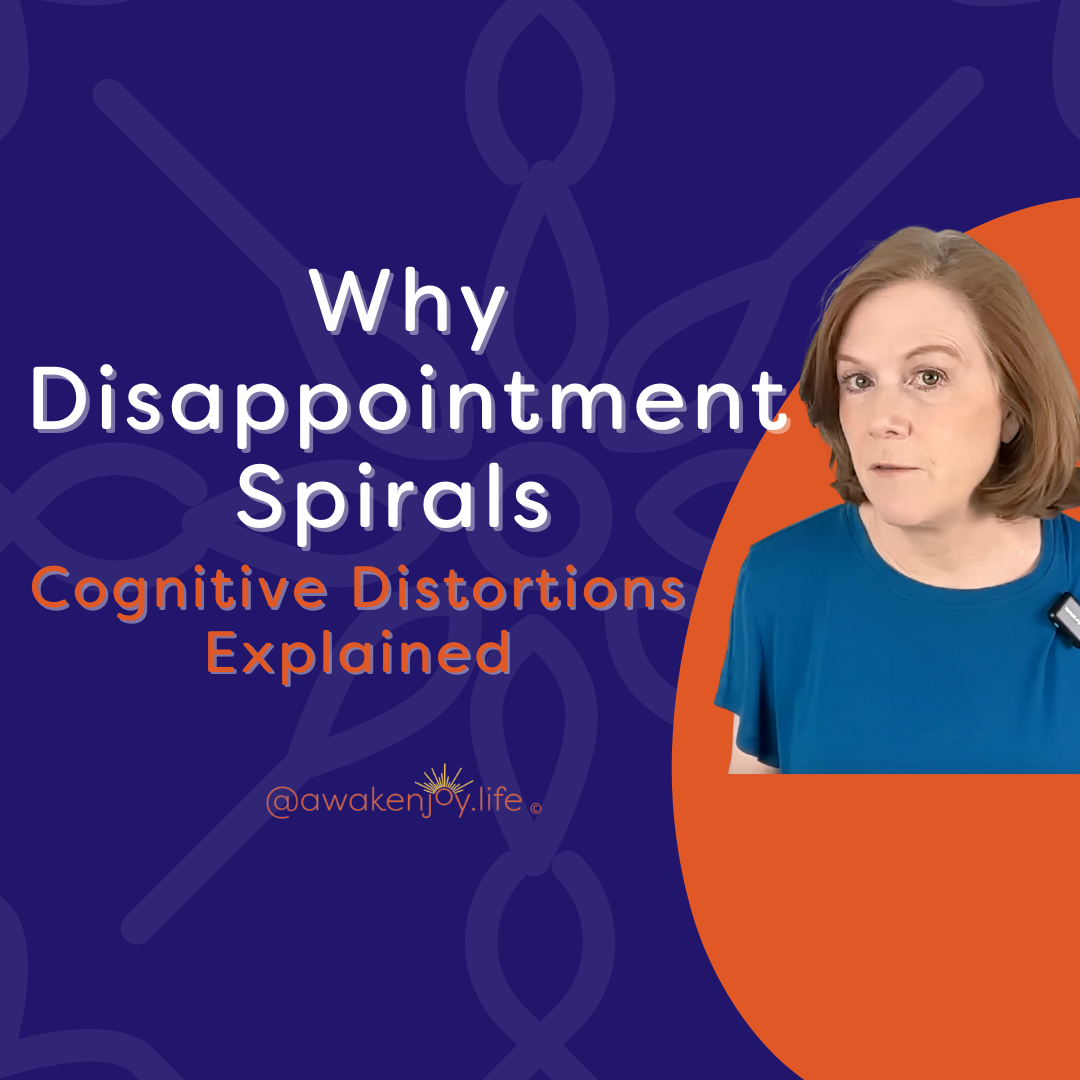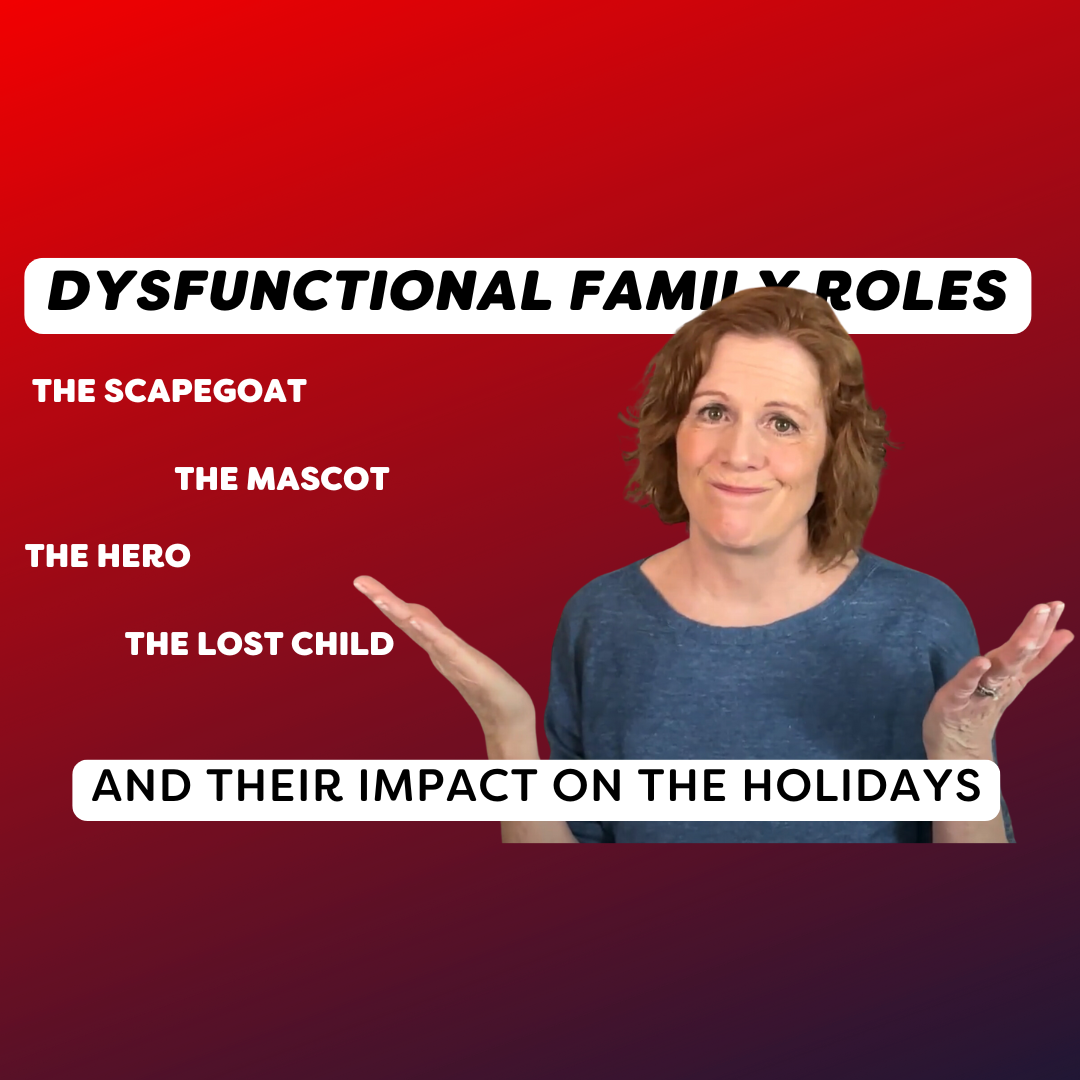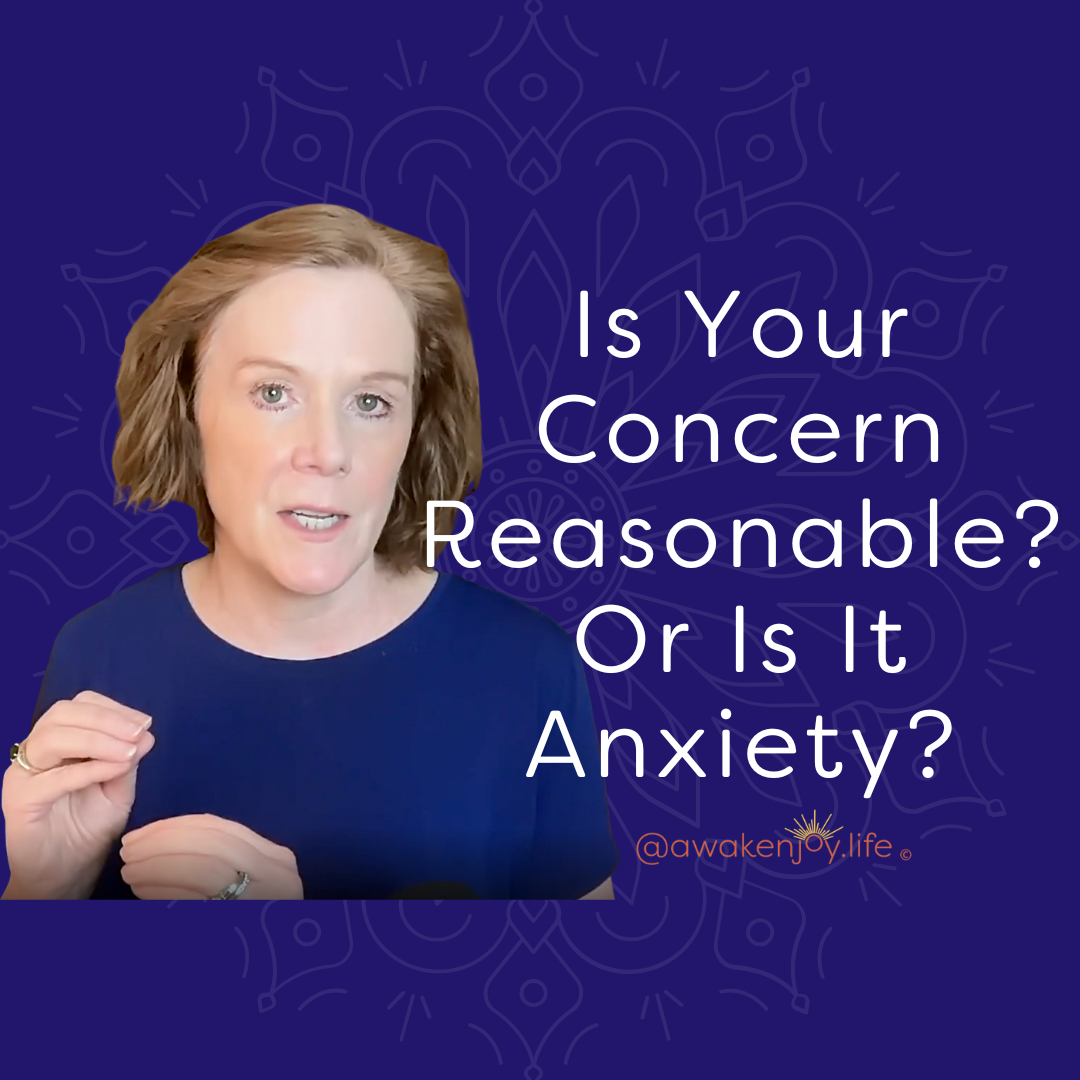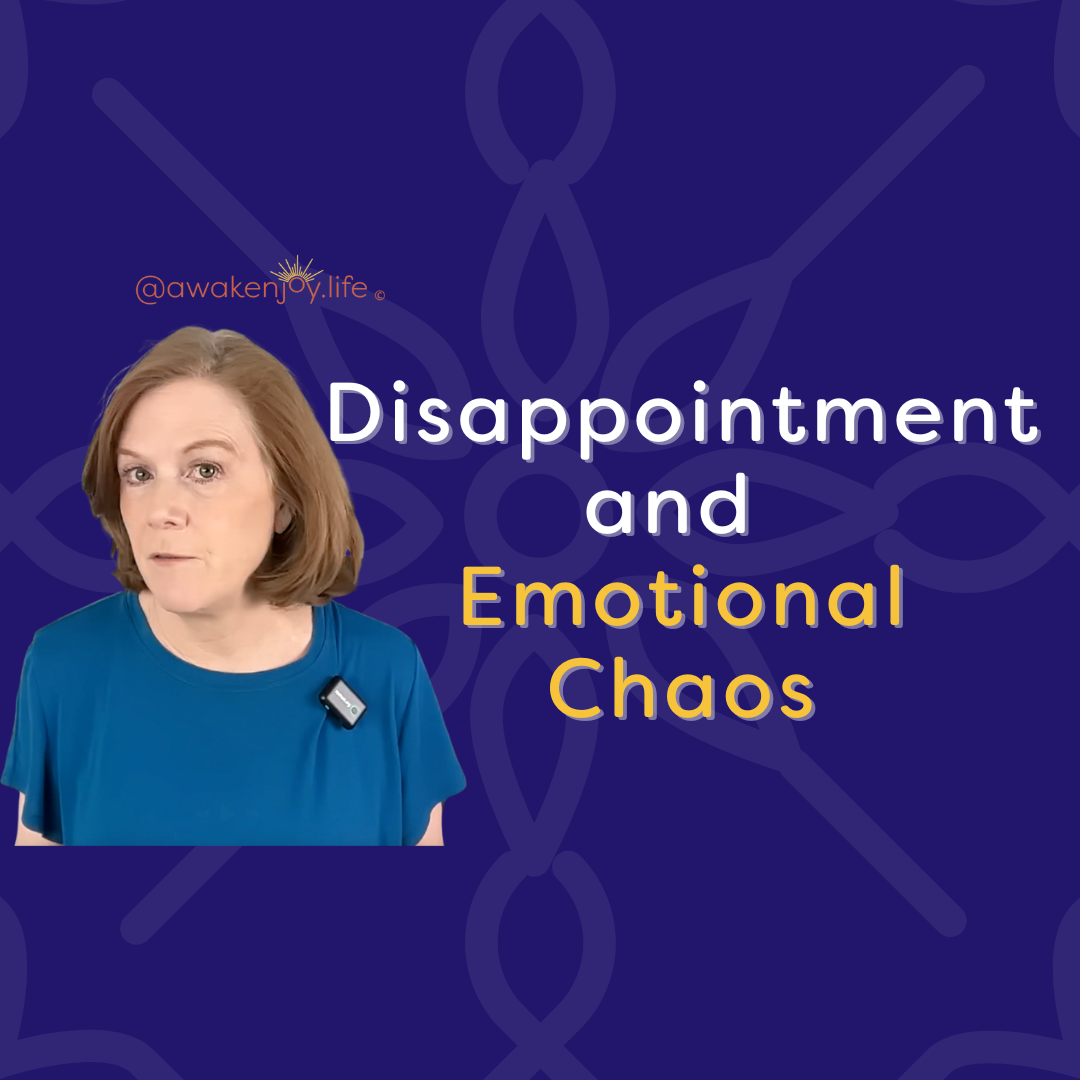Overcome Overwhelm

Defeated.
Powerless.
Submerged.
Overwhelm is a horrible feeling.

It can feel like you are drowning.
Or like you are frozen. Immobile.
And, actually, these feelings are directly related to your nervous system. Because overwhelm is a manifestation of the freeze response.
The freeze response is the most anxious of the three responses, fight, flight, freeze. The freeze response happens to mammals when they are in life-threatening danger and they can not fight or flee. In these situations it is protective.
We have a part of our brain that focuses on protecting us from danger. Unfortunately, this part of our brain does not differentiate between a saber tooth tiger attacking us and an exam that we're worried about, or a boss that scares us. Our brain reacts with the same fight, flight or freeze, whether it's a physical danger or not.
So we don’t usually think of overwhelm as an anxiety response. But if we begin to understand that it is an anxiety response, and that the frozen or submerged feeling is because we are responding with the most extreme response, we can pull in our higher-level thinking and calm ourselves down.
Recommendation #1
Calm Yourself Physically
So the very first thing to do if you are feeling overwhelmed is to back away from that freeze state and the high level of anxiety by calming yourself physiologically.
Diaphragmatic breathing and grounding exercises are two of the most effective tools to do this.
Now, this is going to feel totally counterintuitive. When we are overwhelmed with too much to do, too many projects, time rushing by, the last thing we want to do is take a break. But honestly, it's the only thing that is going to help.
Recommendation #2
Look at Your Thoughts
Once you have calmed yourself physically, step back and take a look at the thoughts that are contributing to the overwhelm.
Overwhelm is all about the future: worry, anticipation.
“I have to do this or else…”
“I have to get this project done, or I'll lose my job.”
“I have to get to this party on time, or my friend will be mad at me.”
Whatever the specifics, it is a projection. It is not right in the moment.
As you look at your cognitions with an “observer” point of view, consider what is driving the thoughts.
Is it the people pleasing fear of not being on time fora friend?
Is it the catastrophizing about not doing well enough at your job?
What is actually going on with those thoughts and where can you put some question marks in them?
Because there are probably some cognitive distortions driving your overwhelm.
Now this isn't to say that you don't have too much to do.
I remember I felt overwhelmed often when my kids were young. I was the sole financial support. I was working. I was trying to raise three children. It was strange because one of the things that would overwhelm me the most was the paperwork for their schools (things weren't all online then). I would have paperwork piled up and the paperwork would have deadlines. I would look at that paperwork and I'd go into a freeze, shut down state. I felt, “I just can't do it.”
The thing that put me the most into the overwhelm freeze state was probably the most minor. But, we all have different things that trigger us into overwhelm.
Recommendation #3
Bring In Compassion for Yourself
While you're looking at your thoughts, see if you can bring in a thought and feeling of “I'm an okay human being who has too much to do. It's not that there's something wrong with me that I can't get everything done. I simply have too much to do.”
Being a human being is hard. It really is hard. So if you acknowledge how much you do and how much you care it can be enormously helpful.
Recommendation #4
Choice Point: Do You Need More of a Break or Are You Ready to Prioritize?
Once you have calmed physically, questioned some of your thought patterns, and brought up some compassion, it is time to ask yourself ,“Do I need to take a little bit more of a break before I tackle my to-do list? Or do I feel calm enough that I can jump in and begin to prioritize?”
Remember that overwhelm is an extreme anxiety response and it can take some time to calm down. So, if you are still feeling very anxious, it might be worth taking some more time to calm down.
When you too much on your plate, the best way to sort it through is with full brain thinking. We want your whole brain online to problem solve and to think things through, and that happens when we are in an alert but relaxed state. When we are being driven by the fight flight freeze anxiety response, we are in urgent, panic mode. We aren’t thinking clearly, our risk assessment is not fully online, our ability to really analyze, is not online.
Recommendation #5
Prioritize
Once you feel you are calm enough, prioritizing is the next step.
I want to share a framework with you that is very helpful for prioritizing and preventing overwhelm, . It's called the Eisenhower Matrix, or the Urgent-Important matrix. I’ll show it here. But it allows you to divvy up your tasks into one of four quadrants, assessing how how urgent it is and how important it is
A lot of the things that put us into overwhelm are actually in the low importance category because if we think about our priorities, our big picture priorities are living a happy life, strengthening our relationships, taking care of our kids if we have kids.
The things that make life meaningful are almost never urgent.
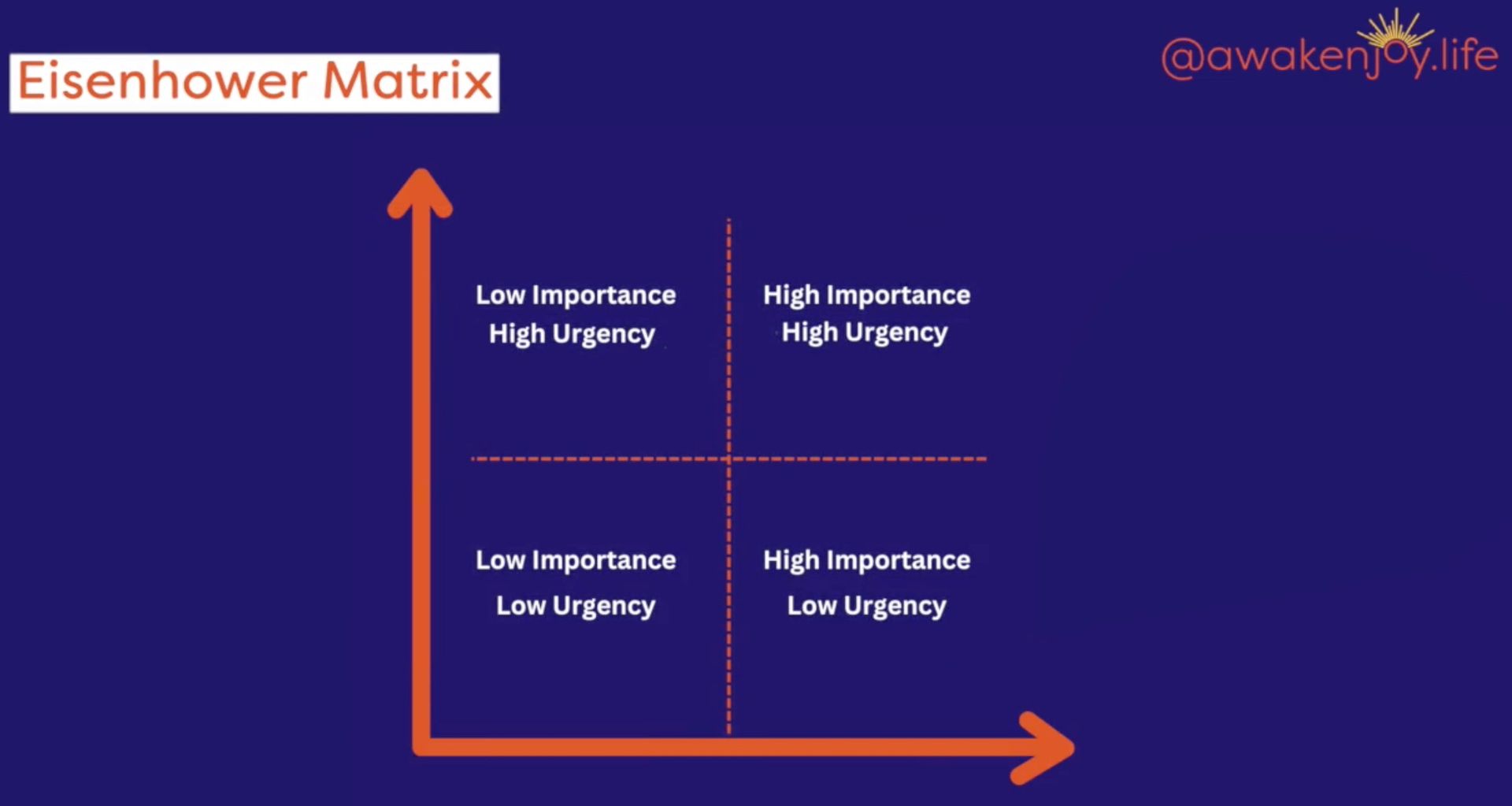
At some point in my life, I realized the only things that are highly important and highly urgent require a 9-1-1 call. An emergency. Those require a visit to the hospital, a call for the police.
Most of the things we are dealing with are not actually urgent. Now, this might be a matter of semantics, but I think it can be really helpful for people who struggle with anxiety to change the term in this matrix to “Time-Sensitive”. These are things with deadlines, but not necessary urgent.
The term urgency means gravity, critically important, needs immediate attention.
So even things that are very important to us and are time sensitive, are not necessarily urgent.
Let's say you have a project that is due in three hours. Yes, you need to pay attention to that now. You need to begin to focus on it, but it doesn't require the same type of attention that you would need if you needed in a 9-1-1 situation. So rather than calling it urgent in the top two boxes of the matrix, I would rather create a fifth box that is for very important and urgent.
I remember when one of my kids fell in a swimming pool. That was urgent and immediate. They were very little and did not know how to swim. Boom! I was in that water. I grabbed them and pulled them out (thank goodness!). That didn't require planning. It was immediate and urgent and highly important. So that's the kind of thing that goes into this fifth box.
My guess is that nothing on your plate right now falls into this category.
And, I think it is best to change the word “urgent” to "time sensitive" in the Eisenhower Matrix.
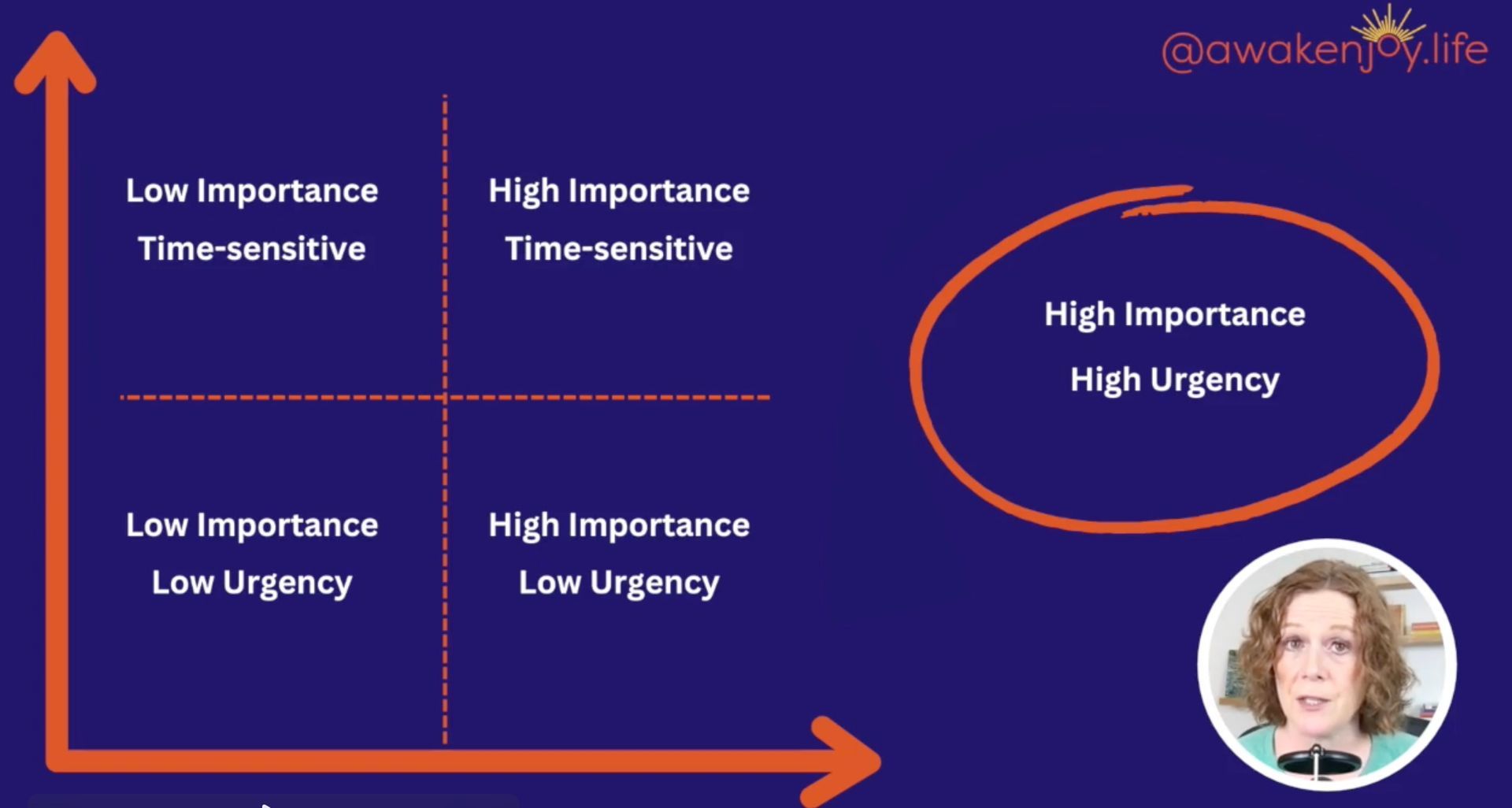
Thinking about your priorities this way can help you figure out your where you need to spend your time now.
Let’s say you have a number of things that are time sensitive and highly important, and the deadlines are too short for you to do them all. Sometimes, that is the reality of the situation.
In these cases, you might need to delegate something or ask someone for help. You might need to call a client and delay a deadline. This isn’t comfortable, but it might be necessary.
The required action in these situations might be something that is uncomfortable for you, but being uncomfortable is not the same as panic. Being uncomfortable is sometimes ok.
It will be very helpful if you approach this situation with these thoughts: “I'm an okay human being, who has too much to do.”
This will help you think through the solutions to your current situation.
Now, I know a lot of people would say to me,
“But I don't feel like I'm good enough. I don't feel like I'm okay as I am.”
This thinking reflects a negative core belief that can impede our happiness and our functioning. It is often the main reason we are struggling. I do have a
free PDF called Transform Your Negative Core Belief. It helps you identify what your negative core belief is and then provides practical tools to begin to rewire that thinking.,
Please let me know if this was helpful for you, by commenting below.
Blog Author: Barbara Heffernan, LCSW, MBA. Barbara is a licensed psychotherapist and specialist in anxiety, trauma, and healthy boundaries. She had a private practice in Connecticut for twenty years before starting her popular YouTube channel designed to help people around the world live a more joyful life. Barbara has a BA from Yale University, an MBA from Columbia University and an MSW from SCSU. More info on Barbara can be found on her bio page.
Share this with someone who can benefit from this blog!

